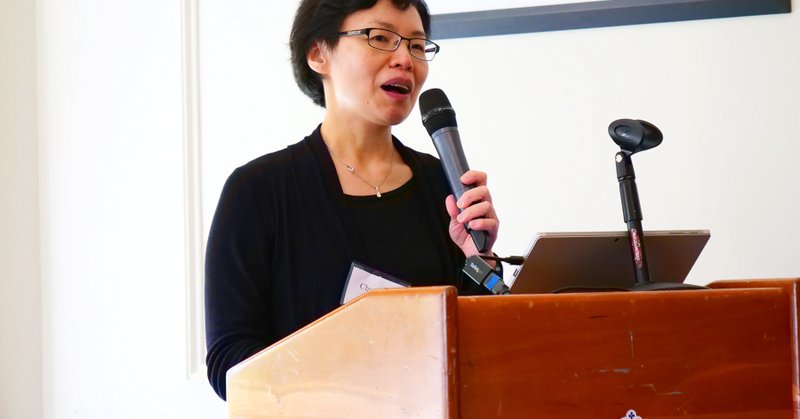
Columbia DBMI
@ColumbiaDBMI
Followers
1K
Following
30
Media
944
Statuses
2K
Dept of Biomedical Informatics at @ColumbiaMed @Columbia: discovery and impact in research and education
New York, NY
Joined October 2016
The @Columbia Dept of Biomedical Informatics, located within @nyphospital, is one of the oldest informatics departments in the nation. Our faculty and students work in a highly collaborative research environment to enhance global healthcare. Learn more:
0
0
3
Congratulations to Chunhua Weng (@nychunhua) on earning the Donald A.B. Lindberg Award for Innovation in Informatics, which was announced today by AMIA! Chunhua is DBMI’s 5th Lindberg Award winner, and our third in a row! https://t.co/gG6N6pvwM2
dbmi.columbia.edu
Chunhua Weng, Professor of Biomedical Informatics at Columbia University, has been selected as the 2024 recipient of the prestigious Donald A.B. Lindberg
0
1
5
After a brain bleed, keeping the “just right” blood pressure can save lives. New study led by DBMI's Soojin Park shows non-invasive brain sensors have promise but need their own settings to match invasive tools. https://t.co/OjBQqcXaMW
link.springer.com
Neurocritical Care - Patient differences from optimal mean arterial pressure (MAPOPT) derived by a cerebral oximetry index (COx_a) are associated with outcome, but the validity of COx_a-derived...
0
0
0
Nurses’ subtle documentation patterns powered the ML-driven CONCERN Early-Warning System that cut mortality by 35.6%, reduced sepsis risk & flagged patient decline up to 42 hours earlier. The power of merging nursing insights with AI innovations! https://t.co/f61Yi5chM0
kmworld.com
Using an ensemble modeling approach, eventually about 1200 models were developed that encompassed a wide range of different measures, including how many days the individual had been hospitalized,...
0
1
2
New DBMI research published in @npjDigitalMed shows how combining DNA & EHR data redefines disease categories—leading to more precise phenotypes and better discoveries. @gamzeandgursoy #HealthData #GenomicMedicine
https://t.co/OrGGsE4QE5
dbmi.columbia.edu
Precision medicine holds the potential to tailor care to a person’s genetic makeup. But a new Columbia study finds that these efforts depend strongly on a s
0
3
9
Technology achieves its highest purpose when it directly improves human lives. That philosophy guided @harryreyesnieva during his PhD journey at DBMI, where he focused on refining how biomedical data (28M+ studies!) can be systematically researched. https://t.co/yR4rLxoMAd
dbmi.columbia.edu
techniques. His PhD work focused on designing AI and informatics-driven approaches that can continuously learn from biomedical literature and real-world
0
1
2
Thank you to the faculty for leading this first-time course here at @ColumbiaPS, and for the fantastic trainees who were engaged throughout the week! @Columbia @DataSciColumbia @ColumbiaMed #JoinTheJourney #RWE #RWD #OpenScience #AI
0
1
2
No better way to end the DBMI Summer School in Observational Health Data Science & Informatics, AI, and Real World Evidence than to have the students share their findings. Six teams, six topics, one @OHDSI path towards generating reliable evidence.
1
3
4
🧵1/Today, we published a key milestone towards AI based cardiac screening in Nature. https://t.co/Lr3ymIrgz5 EchoNext outperformed cardiologists and found thousands of high-risk patients missed in routine care. We also made a version available to the world.
13
45
191
The @OHDSI Summer School at DBMI wraps up today, and teams will work on study execution after presenting protocols yesterday. Exciting to see topics around prostatectomy, GLP1, Chronic Kidney Disease prediction and HIV. So many research possibilities through collaboration!
1
0
1
Day 4 of the DBMI Summer School in Observational Health Data Science & Informatics, AI, and Real World Evidence (@OHDSI), and the #opensource tool Strategus is a focus. It's been a great week of learning, with some NYC fun mixed in as well!
0
0
0
In a head-to-head comparison w/ 13 cardiologists on 3,200 ECGs, #EchoNext accurately identified 77% of structural heart problems. In contrast, cardiologists making a diagnosis with the ECG data had an accuracy of 64%. @ColumbiaPS @DataSciColumbia Study: https://t.co/bOR7s29ISs
0
0
0
New @Nature study from DBMI assistant professor @PierreEliasMD shows AI can detect early heart disease from standard ECGs — even when scans look normal to the human eye. The result? Unknowing patients could get treatment when they need it most. https://t.co/pKe6Cqyc7h
cuimc.columbia.edu
With the help of AI, an inexpensive test found in many doctors’ offices may soon be used to screen for hidden structural heart disease.
1
3
3
It's Day 3 of the DBMI Summer School in Observational Health Data Science & Informatics, AI, and Real World Evidence (@OHDSI). Developing phenotypes and building cohorts is on the agenda today. Great week so far with an engaged classroom of eager learners!
0
0
2
The @OHDSI Summer School at @ColumbiaPS is on! We are so excited to have a full room of people excited to learn about the potential for observational health data research! Today's focuses are introducing OHDSI research, the OMOP CDM, standardized vocabularies and more.
0
1
2
The DBMI Summer School in Observational Health Data Science & Informatics, AI, and Real World Evidence begins tomorrow, and our fantastic faculty is making final preparations. Excited to teach the @OHDSI way over the next week! #JoinTheJourney
0
1
3
Columbia opened the Center for Innovation in Imaging Biomarkers & Integrated Diagnostics (@CIMBIDColumbia), uniting @ColumbiaPS experts to harness AI/biomedical imaging for precision medicine. Leaders @DespinaKontos & @noemieelhadad spoke at the launch. https://t.co/yQUhRQCIUh
columbiaradiology.org
A day-long series of presentations and events showcased the new center’s broad expertise in leveraging artificial intelligence (AI) and biomedical imaging data for personalized medicine.
0
0
2
The CONCERN Early-Warning System uses AI to analyze nursing documentation patterns & predict hospital patient deterioration up to 42 hours earlier than traditional methods, was profiled by @nvidiadeveloper. DBMI's @SarahRossetti47 co-leads this work. https://t.co/KmUL0G215V
developer.nvidia.com
Researchers have developed an AI-powered tool that can analyze nurses’ shift notes to identify—far earlier than traditional methods—when an admitted patient’s health may be deteriorating or on the…
0
0
0
Thank you to @CNN and Clare Duffy for having me on to talk about our work using AI to advance medicine and where the field is headed for patients, clinicians, & the country. Spotify https://t.co/fCyaTgmH7M Apple Podcasts https://t.co/3OGxE7waBs YouTube https://t.co/DO9MFRBfkA
0
1
22
The CONCERN Early-Warning System uses AI to analyze nursing documentation patterns & predict hospital patient deterioration up to 42 hours earlier than traditional methods, was profiled by @nvidiadeveloper. DBMI's @SarahRossetti47 co-leads this work. https://t.co/KmUL0G1tgn
developer.nvidia.com
Researchers have developed an AI-powered tool that can analyze nurses’ shift notes to identify—far earlier than traditional methods—when an admitted patient’s health may be deteriorating or on the…
0
0
0









